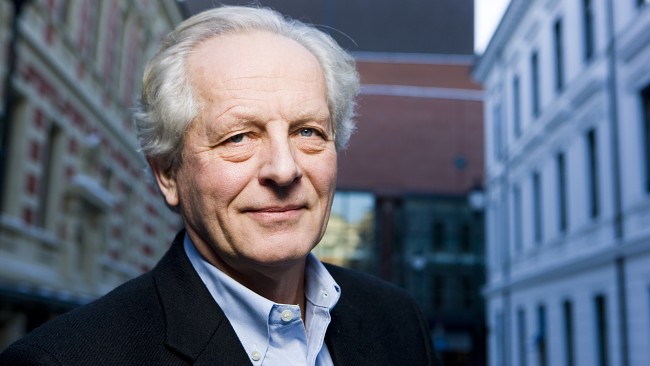William Nygaard is the former CEO of publishing house Aschehoug and now serves as the chairman of Norwegian Broadcasting and the President of Norwegian PEN. In 1989 he published the Norwegian edition of Salman Rushdie’s novel The Satanic Verses. On 11 October 1993, Nygaard was shot three times outside his home in Oslo, a crime likely connected to the fatwa which Ayatollah Khomeini issued against the book and its publishers.
IPA: The Nordic countries, and Norway in particular, have always been strong promoters of freedom of expression. Why is this?
William Nygaard: Norway, a small and young independent nation, has acquired though its history a strong feeling for the importance of democracy and freedom of expression as human values. The Second World War, in particular, strengthened this attitude.
How do you view the role of publishers as guarantors of freedom of expression?
Publishers’ responsibility as guarantors of freedom of expression is part of our history and our professional obligations. In Norway, publishers are expected not just to uphold these values, but to integrate them into their business practice. An example is our net book agreement, which seeks to benefit society as a whole.
It is always important to educate and debate the role of the profession, particularly when the structure of the trade is changing and new generations are getting involved. You can never expect every participant to understand the seriousness of the issues when starting, but the key commitment to the profession should be part of the traditions of the trade and its associations. Recruiting the right kind of people who understand the seriousness of the profession is important, but the educational role of IPA and the national publisher associations is decisive. Responsibility starts with the owners and continues with the management and publishers. Educating the management and publishers is even more important than educating the editors.
Your experience demonstrates that threats to publishers are very real. How do you sense these threats are evolving, eg in the aftermath of Charlie Hebdo? Are you worried that fatwas against publishers will become more common?
It would really undermine the whole role of a proud profession if publishers stopped looking upon themselves as willing risk takers and fighters for freedom of expression. The Charlie Hebdo incident proves how important the publisher’s role is in securing understanding and tolerance in all corners of society. Cartoons, as a genre, poke fun at people’s self-importance. This attitude should travel across religions and politics. It is however important to publish content that, from an editorial point of view, looks to create dialogue and positive communication.
Forget about fatwas. That is part of the natural risk taking of the profession.
Do you fear that publishers may no longer want to publish important, but controversial works?
If the IPA and the national publishing associations give up drawing attention to this issue with all the players in the sector, then yes, this might happen. It’s a question that should be continuously debated in the media and discussed in educational programs. There’s a dangerous mentality today that profit should be the primary goal of publishing, which ignores our wider responsibility, and that creates a risk which has to be fought.
This stems from the globalization of the industry and the size of conglomerates dominating it. I worry that the people they’re recruiting are not prepared for the responsibility of defending freedom of expression. The distance between the financial people with the real power, and the editorial risk takers is too large, creating a lack of common understanding.

